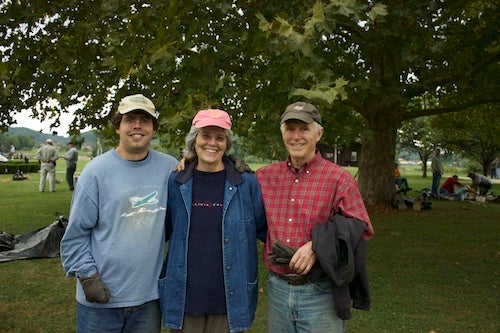 Graduate Instructor
Graduate Instructor
Editor, Graduate Humanities
ARMLOADS OF BOOKS: STORY & CRAFT
My earliest memories as a child include walking four blocks between my home and the library with an armload of chapter books soon to be devoured and taken back for a second armload, and then a third…. Each book adding another segment to the paper Book Worm taped on the library wall.
The essence of this memory—love of stories, love of learning—saturated my undergraduate and graduate days studying the humanities and studio arts, and continues today. Several times a month I drive home from a beloved local Indie bookstore with two or three new or used books for all ages, fiction, non-fiction, graphic novels, and, lately, poetry.
These days it’s not only imaginative stories that hold my attention, but, also the author’s correct grammar, rich vocabulary, and wide-ranging scholarship.
EXPERIENCE & CURRENT POSITIONS
- Graduate Instructor (2018 – Present)
- Editor, Graduate Humanities (2011–Present)
- Program Assistant, Graduate Humanities Program, Marshall University (2011–Present)
- Board Member, Step-By-Step, Inc. (2013–2023)
- CEO, CharacterEthics, LLC (Strength-based Facilitator/Trainer/Consultant for Non-profits) (2000–2018)
APPROACH TO TEACHING & FACILITATING
My approach is heavily influenced by my experience as a student in this program, as the program assistant, and as a professional facilitator/trainer/consultant.
I endeavor to deliver a rigorous syllabus with compassion, keeping in mind that the adult learner needs depth and practicality. Everyone is an expert at their own experience and I invite each student to bring all of themselves into the seminar and share their perspectives and ideas. I set the students up for success so they can enter into discussions and activities with ease and feel competent in their writing.
I incorporate music, poetry, and art–respecting multiple learning styles. Along the way, expressions of trust, compassion, laughter, and creativity emerge to ease the inevitable transitions and transformations that accompany learning.
Weaving through my strategies for teaching is a definition of the humanities by American Philosopher, Ralph Perry. In his classic 1956 work, The Humanity of Man, Perry stated: “‘The humanities’ is not to be employed as a mere class name for certain divisions of knowledge or parts of a scholastic curriculum, or for certain human institutions, activities and relationships, but to signify a certain condition of freedom which these may serve to create ….” (26). In an introductory seminar on humanities, Dr. Lassiter drew on the chalkboard a simple visual of Perry’s philosophy:
As I watched this visual take form under Dr. Lassiter’s hand, my throat began to hurt as I held back my tears. I wanted to stand up, thrust a fist into the air, and shout “freedom.” I was relatively new to the program and didn’t realize that I could have done just that, such is the kindness and openness of Dr. Lassiter. There would be questions, of course, not about my impropriety, but about why Perry’s clarity spoke so strongly to me. I have been enough of an activist in issues pertaining to war and civil rights to understand that having the freedom to make your own choices, providing they do no harm, is largely what conflict resolution is about.
Side by side with my emphasis on growing the capacity for enlightened choice is collaboration: how to work together to achieve learning and effect change by multiple people on multiple levels. An example of this is described in Octopus, Elephant, Beehive: An Appreciative Inquiry into a Thriving Step By Step, Inc., one of the Graduate Humanities program’s recently published books. It’s the outcome of what Dr. Lassiter describes in the book’s Afterword as “a kind of partnered teaching and learning—a ‘collaborative pedagogy’—that is two-way and reciprocal, and only possible when community and university come together to understand and address a commonly identified issue and problem.” (See a fuller description here.)
EDUCATION FORMAL & INFORMAL
2021 MFA in Creative Nonfiction, West Virginia Wesleyan College
2008 MA in Humanities, Marshall University
Over the years I attended many intensive and ongoing workshops pertinent to my work practice of helping workplaces and communities be humane and engaging. Here are some that I continue to draw from:
2010 Skilled Facilitator Intensive Workshop, Chapel Hill, NC
2010 Journey of Facilitation and Collaboration Intensive Workshop, Madison, WI
2008 Non-Violent Communication Intensive Workshops: OH, NC
2005 Foundations & Frontiers in Appreciative Inquiry, Case Western, Weatherhead School of Management, Cleveland, OH
2002 Training for Trainers with the Institute of Global Ethics
1996 Facilitation training for the Center for Civic Life / Kettering Foundation
1993 David Lazear – Multiple Intelligence Workshop
My greatest learning has come from the abundant wisdom of teachers, students, colleagues, and clients.
SELECTED PUBLICATIONS
Octopus, Elephant, Beehive: An Appreciative Inquiry into a Thriving Step By Step, Inc., edited by Trish Hatfield and Jim Hatfield, with Graduate Humanities Program students Bethany Buckner, Royce Diehl, and Tyler Lucas. In collaboration with staff members of Step By Step, Inc. (An occasional publication of the Graduate Humanities Program, 2021).
“Chemical Spill Encountered.” In I’m Afraid of that Water: A Collaborative Ethnography of a West Virginia Water Crisis, edited by Luke Eric Lassiter, Brian A. Hoey, and Elizabeth Campbell and the Graduate Humanities students and community research partners of the “Charleston Water Crisis” Graduate Humanities Program seminars (West Virginia University Press / Morgantown, 2020).
“Cornbread and Black-eyed Peas” and “Mayo Variation.” One Foot in the Gravy—Hooked on the Sauce: Recipes You’ll Relish, edited by Cat Pleska (Mountain State Press, Inc. 2017).
“Holding Smoke in Your Hands, Chapter 1.” Constellations: An Anthology of the Marshall University Graduate Humanities Program Celebrating Thirty Years (1979–2009) with the students and faculty of the Marshall University Graduate Humanities Program (An occasional publication of the Graduate Humanities Program, 2009).
“Leadership Within: Ethical Decision-Making Skills,” WV Executive, Summer (Executive Ink, LLC, 2004).
